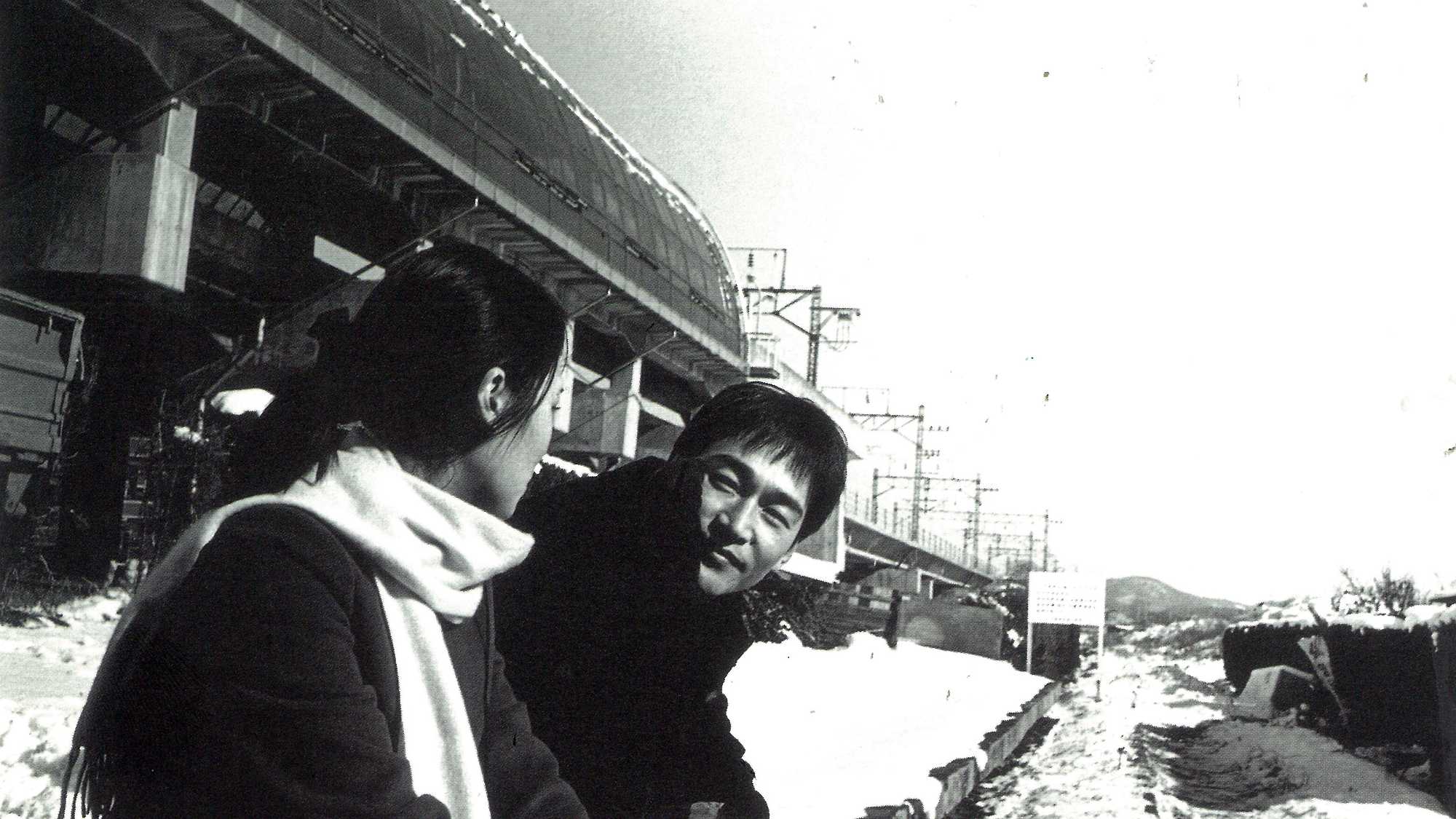
Screened as part of NZIFF 2001
Virgin Stripped Bare by Her Bachelors 2000
Oh! Soo-jung
The recent cinematic trend of older man/younger woman fetish fantasies is both parodied and exposed in this dryly engaging film by one of Korea’s most acclaimed new directors. Playfully skipping between the man’s version, the woman’s version and different moments of the day when the two protagonists might finally have sex, Hong Sang-Soo gives the tale the light feel of early Godard or romantic Truffaut, complete with impressive black-and-white lensing and a spirited disregard for narrative convention. Soo-Jung is a television writer ‘torn’ (a strong word for her remarkably lethargic mood) between two men: her alternately downtrodden or overbearing – but always married – boss Young-Soo, and his friend Jae-Hoon, a wealthy gallery owner. First Jae-Hoon, then Soo-Jung retell their eventual courtship. His recollections remain peppered with references to his fancy sports car; hers are – needless to say – quite different. Both versions, though, involve a blur of increasingly drunken dinners, dates and fateful meetings. Proving that anywhere alcohol goes, love follows (or is that the other way around), Virgin Stripped Bare (named after a Marcel Duchamp work) uncorks lines like ‘How about if I be your girlfriend only when you drink?’ to cynically unveil the truth and remarkable confusion behind love and desire. — Jason Sanders, San Francisco Film Festival 2001
The leading light of the new Korean new wave, Hong Sang-Soo is slowly reinventing the cinema of reverse angles: each new shot he makes seems to elaborate on – and thoroughly destabilize – the one that came before it. Though relatively minor compared with The Power of Kangwon Province, Virgin Stripped Bare by Her Bachelors – Hong’s first comedy, a kind of ultrablack Annie Hall about a rich art dealer, a failed filmmaker, and the woman they both want to bed – takes the idea of shot/reverse-shot cutting to its metaphysical extreme. The first half of the film tells one version of the story, then the second half tells another, but the more things come together, the more they fall apart. Though easily mistaken for a coy narrational gimmick, the ostensible symmetry of Hong’s film is constantly undercut by fresh details and ever deeper character flaws. As literate and self-lacerating as it is luminously photographed (in black and white), Virgin’s the starkest knee-slapper in the festival: so mortifying you’ll almost forget to laugh. — Chuck Stephens, San Francisco Bay Guardian, 1/5/01